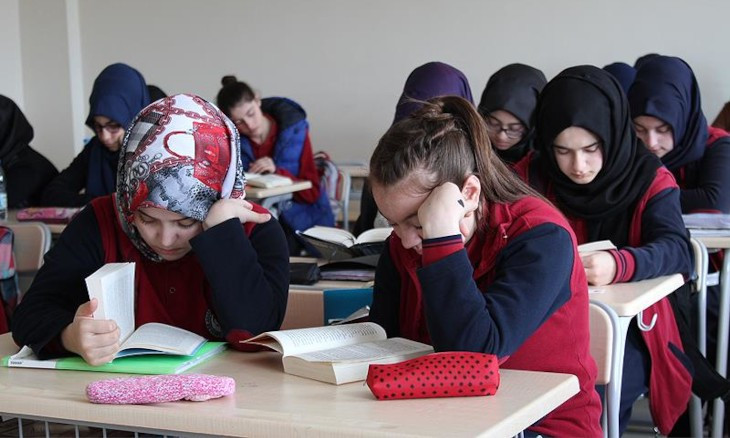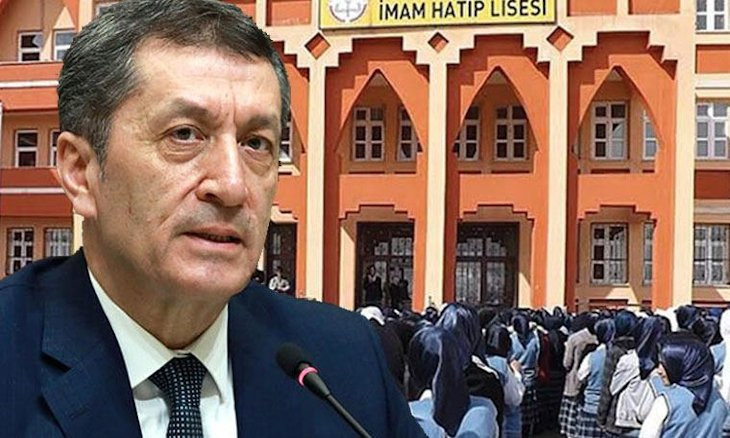Young conservatives increasingly unhappy with Erdoğan: US think tank
Young Turkish conservatives and some less ideological right-wing nationalists are unhappy with the state of Turkey and are increasingly considering potential conservative alternatives to Erdoğan's AKP, according to a report from the Center for American Progress (CAP) authored by Max Hoffman. “In every survey CAP has conducted, younger Turks are less supportive of Erdoğan and the AKP than their older counterparts," Hoffman wrote.
Duvar English
While President Recep Tayyip Erdoğan and the ruling Justice and Development Party (AKP) have tried to preside over the economy with an iron first and raise a young generation of pious Muslims while engaging in military conflict in countries from Syria to Libya, conservatives and right-wing nationalists have become increasingly discontent with Erdoğan and the direction in which the country is headed, according to a report from the Center for American Progress (CAP) authored by Max Hoffman.
 Only 11.1 pct of students in Turkey prefer religious high schools
Only 11.1 pct of students in Turkey prefer religious high schools“Young voters may desert him in sufficient numbers to allow the opposition to defeat him in the next election, now scheduled for 2023, but genuine conservative alternatives are unlikely to materialize unless and until he loses an election or otherwise withdraws from the scene,” Hoffman wrote.
“Still, Erdoğan’s weakening domestic position has important ramifications short of vulnerability in eventual elections. If his weakness proves durable, it may encourage conservative challengers and breakaway factions,” he added.
While breakaway parties have been established by AKP co-founders and longtime Erdoğan allies, former Prime Minister Ahmet Davutoğlu and former Deputy Prime Minister Ali Babacan, it remains unclear to what extent these parties can attract younger conservative-minded and nationalist voters. Critics of the new parties have said that Babacan and Davutoğlu lack the credibility to stand in an opposition role given their years-long collaboration with Erdoğan. Both officially split with the ruling party in 2019.
 Turkey's Islamic high school occupancy rate reaches 99.8 percent
Turkey's Islamic high school occupancy rate reaches 99.8 percentNevertheless, voters in their late teens and early 20s have not seen another government in their entire lives, and many young graduates remain under or unemployed and are struggling in an economy in which wages even for professional, white-collar jobs are low while purchasing power continues to weaken.
Reports indicate that many young people have distanced themselves from religion, despite the thousands of imam hatip religious schools that have opened during the AKP's tenure. These schools have been criticized for underperformance and a very small percentage of Turkey's students actually choose to attend them, another indication that the type of social engineering attempted by Erdoğan has failed to produce legions of young, religious and fervent backers of the government.
“In every survey CAP has conducted, younger Turks are less supportive of Erdoğan and the AKP than their older counterparts. This is important: 18-to-29-year-olds are now the largest demographic voting bloc in Turkey, and each year millions of Turks reach voting age; several million more will join the voting ranks before the next scheduled election in 2023,” Hoffman wrote.
The victory of the main opposition Republican People's Party (CHP) in the mayor elections of almost all major cities in Turkey last year, including Istanbul, Ankara, Izmir, Adana and Mersin was a huge setback for Erdoğan and the AKP, particularly the decision to cancel the results of the first Istanbul election, paving the way for a devastating victory in the second vote by CHP mayor Ekrem İmamoğlu, who many see as a potential challenger to Erdoğan. However, a full three years remain until the next general elections in Turkey, assuming the government does not call for an early election.
“Even if there is no election until 2023, the perception that Erdoğan is losing ground politically will likely shape his own behavior and that of others both at home and abroad. At home, this vulnerability will likely increase the government’s already-severe repression,” Hoffman wrote.
